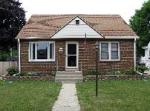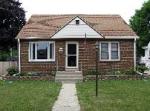 As we look to celebrating the independence of our county let’s also look at how our seniors can celebrate their own independence. Defined as “sufficient income for comfortable self-support; a competence” at dictionary.com, independence is important to seniors.
As we look to celebrating the independence of our county let’s also look at how our seniors can celebrate their own independence. Defined as “sufficient income for comfortable self-support; a competence” at dictionary.com, independence is important to seniors.
When we talk with our clients we hear they want to be able to enjoy their retirement and maintain their lifestyle which includes having their independence. So how can they do this if they are living off their Social Security and if they have retirement investments but they have dropped in value?
Even though as one ages some help may be needed, they can still maintain their independence. A reverse mortgage can help provide this independence. After Edna did her reverse mortgage she said, “Now I have my dignity back and my independence.”
Some instances where the reverse mortgage can help one remain independent include having funds for home repairs, going out to lunch with friends, traveling, visiting family across the country, purchasing a new car, paying medical bills or for medications; paying for help with housework, meal preparation, yard work or transportation, whatever they desire.
Or if one needs more help to remain in their home they would have the funds to pay for the assistance from a home care agency to do so. While some additional assistance may be needed seniors can still have a sense of independence if they have the funds to get the additional help and choose the agency they wish.
Seniors have sometimes used their credit cards to fund their lifestyle or pay their bills, others have used a conventional home equity mortgage or a line of credit. And others look for additional cash by applying for a conventional home equity mortgage but don’t qualify.
The reverse mortgage can benefit here too. Interest rates on credit cards are high. Having the reverse mortgage can reduce their dependence on their credit cards. They usually don’t qualify for a conventional mortgage with today’s lending requirements especially since their only income is Social Security. Even if they do qualify or currently have a home equity mortgage or line of credit, they have to make payments which can be difficult on a fixed income or when “life happens.”
Another Minnesota reverse mortgage borrower said, “With a reverse mortgage you begin to have independence anew and you begin to feel more secure. Being free from monetary anxiety, you have better control over spending your equity.”
A reverse mortgage is a mortgage with special terms for senior home owners 62 and older to allow them to remain in their home. The loan amount is determined by the appraised home value (or FHA lending limit), the age of the borrower, and an Expected Interest Rate. Let’s review the facts of reverse mortgages:
- The title stays in the borrower’s name same as with any mortgage. The borrower owns the home, no one else does.
- Income and credit scores are not required for the HUD insured Home Equity Conversion Mortgage or HECM, the most common reverse mortgage.
- The borrower may be able to stay in their home as long as it’s their primary residence or until their 150th birthday.
- Lower interest rates than other loans – historically the reverse mortgage interest rates have been lower than conventional loans, lines of credit and credit cards.
- A borrower won’t lose their home because they can’t make a mortgage payment – they don’t have to make monthly payments. They are however, as with any loan, responsible for taxes, insurance and maintaining the property and abiding by the terms of the loan agreement.
- The reverse mortgage funds are generally considered tax-free (although if proceeds are used for certain purposes taxes may apply – consult with a tax advisor).
- The proceeds are not considered income so Social Security and Medicare are not impacted and one may still be able to receive Medicaid.
- The HECM is government insured and guaranteed to be available for borrowers.
- Allows access to more funds without paying additional closing costs – there is a growth rate with the line of credit and monthly payment options with the adjustable interest rate program.
- There are no out of pocket costs other than the cost of the appraisal.
- There are no prepayment penalties.
- Borrowers or their heirs get to keep any remaining equity after the loan is paid off.
- The loan is non-recourse which means there is no personal liability to the borrower or their estate as long as they are retaining ownership.
Paying off a mortgage on her home, Judy stated, “I truly believe in reverse mortgages, especially for someone like me with a limited income. I received enough from the reverse mortgage to pay off some other bills and still had a little to put into a “line of credit” account. Some of the bills I am paying are credit card debts which have a very high interest rate. It’s a good feeling to be able to do that. It makes bill paying each month less stressful.” Now this is senior independence.
Have a wonderful time celebrating the independence we have in this wonderful country of ours. And keep in mind that a reverse mortgage equals independence for seniors.
© 2010 Beth Paterson, Beth’s Reverse Mortgage Blog, 651-762-9648
This material may be re-posted provided it is re-posted in its entirety without modifications and includes the contact information, copyright information and the following link: http://wp.me/p4EUZQ-m7
Related articles:
- Reverse Mortgage Help Celebrate Independence
- Finance Retirement with A Reverse Mortgage
- Know A Senior Who Wants Security, Independence, Dignity and Control? A Reverse Mortgage May Be The Answer!
- Respect For Oneself Increases With A Reverse Mortgage
- A Minnesota Reverse Mortgage Borrower Speaks Out On the Benefits With Her Reverse Mortgage
- Using The Reverse Mortgage As A Tool To Strategically Manage One’s Assets
- Reverse Mortgages Help Finance Home Care
- Be Educated About Your Options Of Care And Financing The Care.
- Reverse Mortgages Come To The Rescue of Senior Homeowners
Blog posts’ information is current as of date post published, program is subject to change in in the future. Contact us for current information, 651-762-9648.
This site or the information provided is not from, or approved by, HUD, FHA, or any US Government or Agency.




 As with a conventional mortgage, there are costs associated with a reverse mortgage. While perceived as high, once understood you’ll see the reverse mortgage
As with a conventional mortgage, there are costs associated with a reverse mortgage. While perceived as high, once understood you’ll see the reverse mortgage 







